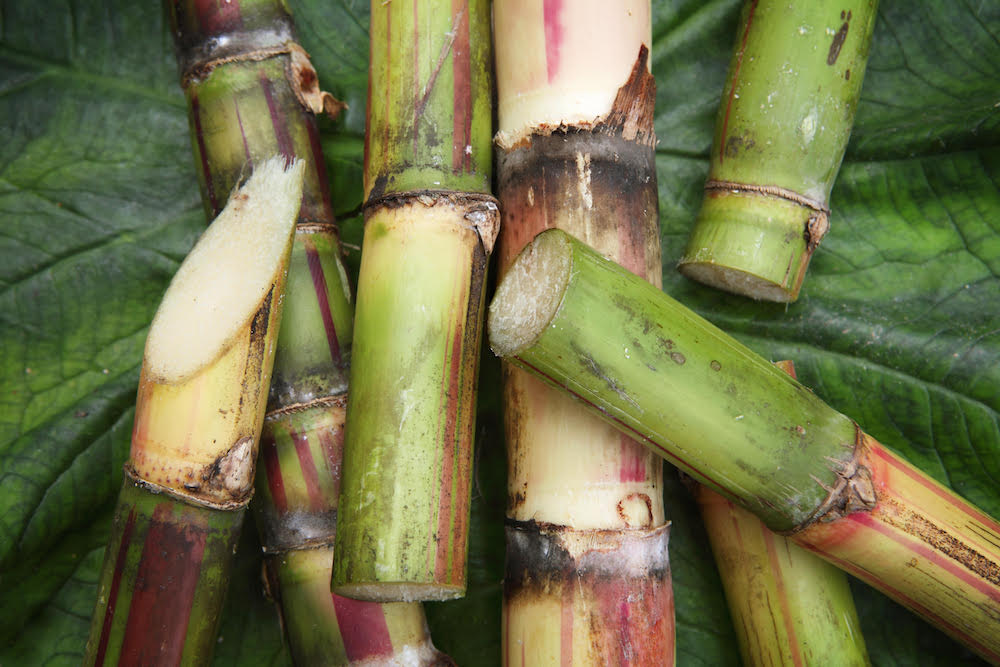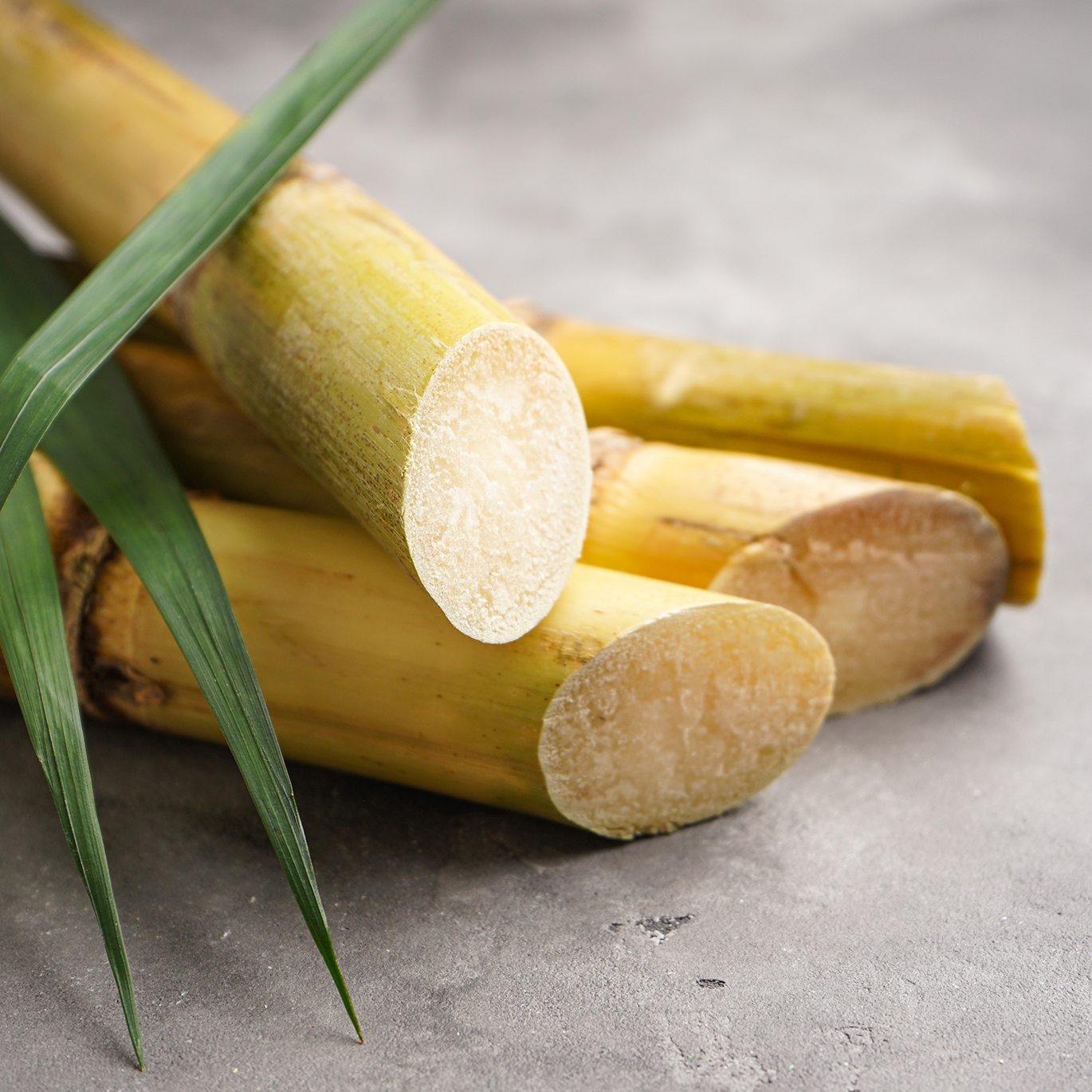Checking Out the Perks of Walking Cane Sugar Processing Chemicals for Sustainable Practices
The assimilation of specialized processing chemicals in cane sugar manufacturing provides a compelling possibility for advancing lasting methods within the industry. These chemicals not just enhance removal effectiveness and product clearness however also add to significant decreases in resource usage and environmental influence.

Summary of Walking Cane Sugar Processing
Walking stick sugar handling entails a series of elaborate steps developed to essence and improve sucrose from sugarcane. This procedure begins with harvesting the sugarcane, which is commonly done by reducing the stalks close to the ground. sugar and cane. Once harvested, the walking stick is transported to a processing center, where it undertakes shredding and cleaning to prepare it for juice extraction
The next step involves crushing the shredded walking cane to release the juice, which contains dissolved sucrose together with different pollutants. This juice is then cleared up, typically via home heating and the enhancement of lime, to get rid of strong impurities and acquire a clearer liquid. The clarified juice is subsequently evaporated to concentrate the sugar material, causing a syrup.
The raw sugar is more fine-tuned through procedures such as drying and cleaning, eventually generating the last item that is appropriate for intake. Each action in this substantial process is vital for making sure top quality walking cane sugar, highlighting the complexity and accuracy fundamental in sugar production.
Duty of Processing Chemicals

Making use of processing chemicals is indispensable to the effective removal and purification of sucrose during walking stick sugar production. These chemicals serve several features, consisting of enhancing the quality of juice, enhancing removal prices, and helping with the elimination of impurities. Secret handling chemicals consist of phosphoric acid, which helps in the information procedure, and calcium hydroxide, which counteracts acidity and aids in the precipitation of pollutants.
Furthermore, refining chemicals can boost the overall yield of sugar by making sure maximum sucrose removal from the walking cane. Chemical therapies are likewise getting prestige, as they can break down complicated carbs right into fermentable sugars, thereby increasing effectiveness. The application of these chemicals not just simplifies the manufacturing processes however likewise makes sure that the resulting sugar fulfills rigorous top quality standards.
Additionally, the function of processing chemicals encompasses enhancing functional performance by decreasing the energy and water needed during processing. This not only contributes to set you back financial savings yet additionally straightens with more comprehensive sustainability objectives within the sugar sector. By recognizing and enhancing the role of these chemicals, manufacturers can boost manufacturing effectiveness while maintaining product top quality and safety and security criteria.
Ecological Benefits
Lasting sugar manufacturing not only enhances functional performance however likewise uses considerable environmental advantages that add to a healthier community. The application of handling chemicals developed for sustainability helps decrease the environmental footprint of sugar production. These chemicals typically allow the reduction of dangerous by-products, fostering a cleaner manufacturing process that safeguards regional waterways and soil high quality.
Furthermore, sustainable methods in cane sugar handling boost biodiversity. By minimizing chemical drainage and contaminants, these methods secure habitats and promote the wellness of surrounding plants and animals. The application of green chemicals commonly leads to much better source monitoring, as they can help with making use of organic waste items as plant foods, thus closing the nutrient loophole and improving the soil.
Furthermore, the change in the direction index of sustainable handling chemicals can decrease greenhouse gas emissions. By optimizing the extraction and refining processes, power intake decreases, resulting in a smaller carbon impact. Inevitably, these advancements not only sustain the sugar sector's ecological objectives but also line up with worldwide campaigns targeted at combating climate change and promoting sustainability. Embracing these practices is necessary for the lasting viability of sugar production and the protection of reference our planet's resources.
Performance and Waste Reduction
Executing sustainable methods not only improves ecological results however also drives efficiency and waste decrease in walking cane sugar processing. The integration of specialized handling chemicals can significantly maximize manufacturing process, minimizing the energy and water consumption usually related to traditional methods. Enzymes tailored to boost sugar extraction can minimize the amount of raw product needed, resulting in reduced functional costs and reduced waste generation.
Additionally, by using eco-friendly or safe handling agents, manufacturers can alleviate the risk of wastewater contamination, leading to lowered treatment needs and further preserving resources (sugar and cane). Structured procedures allowed by these chemicals can additionally enhance the recuperation prices of sugar, which not only takes full advantage of output yet also lowers the quantity of spin-offs that call for disposal
Furthermore, executing real-time tracking innovations together with processing chemicals permits better control over functional parameters, facilitating quick modifications that can stop inefficient deviations. In general, the strategic use of walking cane sugar handling chemicals promotes a holistic approach to production efficiency, aligning economic viability with sustainable practices that profit both producers and the atmosphere.
Enhancing Item High Quality

Furthermore, the application of pH regulators can optimize the processing conditions, ensuring that the sugar retains its desirable flavor account while lessening the development of unwanted by-products (sugar and cane). This not just enhances the general high quality however likewise extends the service life of the sugar, satisfying the needs of both stores and customers
In addition, the application of these chemicals is typically aligned with sustainable practices, minimizing the environmental impact of sugar manufacturing while improving item top quality. By utilizing green and biodegradable handling agents, suppliers can improve their market appeal and add to lasting market standards.

Verdict
In verdict, the assimilation learn this here now of specialized cane sugar handling chemicals supplies substantial advantages for lasting methods within the industry. Eventually, such environmentally friendly solutions align product high quality with sustainability purposes, developing a structure for responsible and efficient sugar production.
The combination of specialized handling chemicals in walking stick sugar production provides a compelling opportunity for advancing lasting methods within the market. Each step in this considerable procedure is vital for making certain top quality walking stick sugar, highlighting the complexity and accuracy fundamental in sugar production.
The use of processing chemicals is integral to the efficient removal and purification of sucrose throughout walking stick sugar production. The use of specialized processing chemicals can considerably boost the purity, color, and taste of sugar products.In verdict, the combination of specialized walking stick sugar processing chemicals supplies considerable benefits for sustainable methods within the market.
Comments on “Sugar and Cane: Exploring Their Role in Traditional and Modern Cuisine”